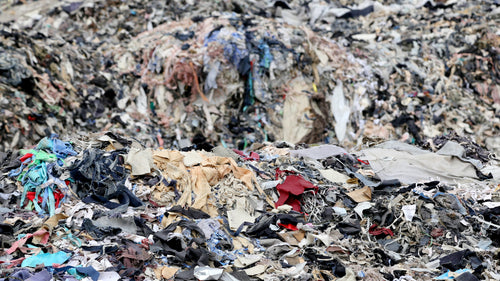
Fast fashion refers to the quick and inexpensive production of clothing. Most often than not, it is associated with low-quality materials and unethical labor practices. While it may seem appealing due to its affordability and ability to keep up with rapidly changing fashion trends, the fast fashion model presents several significant problems.
1. Environmental impact: Fast fashion contributes to environmental degradation in several ways. It relies heavily on synthetic fabrics, such as polyester, which are derived from non-renewable resources that release harmful pollutants during production. Additionally, the fast fashion industry is responsible for significant water pollution and waste generation, as garments are produced in large quantities and discarded quickly.
2. Labor Exploitation: Fast fashion companies often outsource production to low-wage countries with lax labor regulations. This leads to poor working conditions, low wages, long working hours, and even child labor. Workers in these countries often face exploitation and are denied basic rights and fair compensation. The most vulnerable and poor are exploited for financial gains within the fast fashion industry.
3. Disposable Culture: Fast fashion promotes a culture of disposability, where clothes are seen as easily replaceable commodities rather than long-lasting investments. This mindset encourages excessive consumption, leading to a constant cycle of buying and discarding items, which further exacerbates the environmental impact on our planet.
4. Quality and Durability: Fast fashion prioritises quick production and low costs over quality and durability. The garments produced are often of poor quality and have a short lifespan, leading to more frequent purchases and waste generation.
5. Lack of transparency: Many fast fashion brands lack transparency in their supply chains, making it difficult for consumers to know the true environmental and social impact of the clothes they purchase. This makes it challenging to make informed choices and support more sustainable and ethical alternatives.
6. Copying designs and intellectual property infringement: Fast fashion brands are notorious for copying designs from high-end designers and smaller independent brands. This not only undermines creativity and innovation but also violates intellectual property rights.
Overall, the problem with fast fashion lies in its unsustainable and unethical practices. To address these issues, consumers can opt for sustainable and ethical alternatives, supporting slow fashion brands like HĀNM, and embracing a more conscious and responsible approach to fashion consumption.











 UAE Store
UAE Store
 UK Store
UK Store